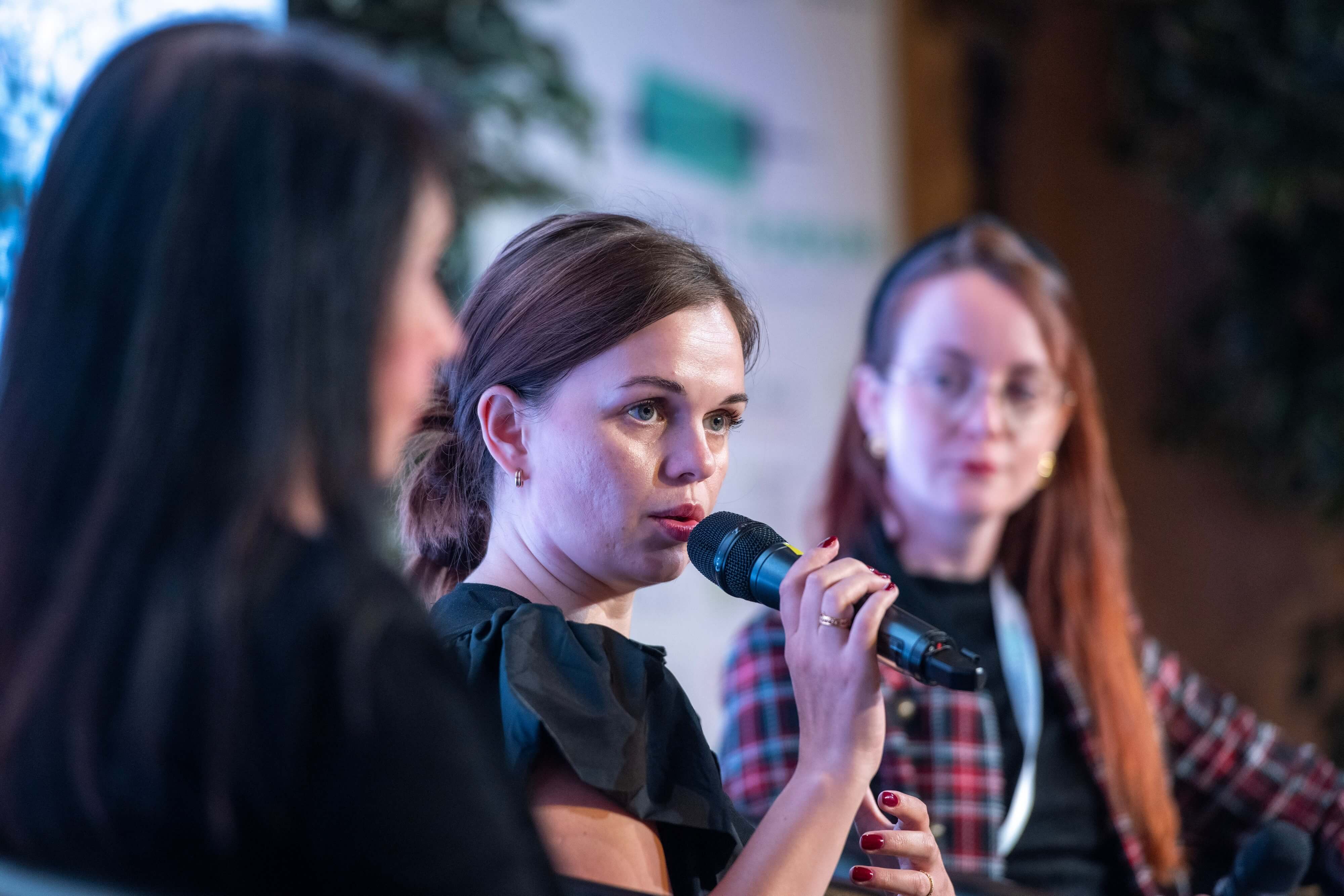What does it Take to Win? – Insights and Lessons from Russia's War in Ukraine
2024-09-26
Participants
- Amanda Paul – Deputy Head of the Europe in the World Programme, European Policy Center
- Oleksandra Azarkhina – Former Deputy Minister of Communities, Territories and Infrastructure Development, Ukraine (online)
- Olha Opalenko – Head of Evidence, Truth Hound, Ukraine
- Moderator: Dorka Takácsy – Visiting Fellow, German Marshall Fund

Main takeaways:
- According to Amanda Paul, the chance of negotiation in case of ending the war is currently close to zero percent, despite Ukraine wanting to end the war more than anybody. Furthermore, if a potential ceasefire takes place, it would be an opportunity for Russia to enter Ukraine again, because seemingly the goal of Vladimir Putin is to wipe out Ukraine.
- Turkey and Qatar have been playing significant roles in the issue of Prisoners of War (POW-s).
- Russia makes use of enormous resources to implicate an aggressive image of Ukraine and its allies all over the world. However, Russia does not act alone, China and North Korea also support it in the war.
- The war did not begin in 2022, but in 2014 with the events of Euromaid during which a strong mobilization of civil society took place. Ordinary people got more involved and as a result, they got more resilient which helped them survive in the current war.
- Olha Opalenko highlights that Russian war crimes such as sexual assaults, mass killings and forced displacement have serious consequences for Ukrainian society in the form of psychological trauma, collective fear, despair and grief. Documenting these crimes has become much more common since 2014, however, the trials and the punishment of these violations take multiple years, which can result in a sense of hopelessness in Ukraine.
- Reconstruction of the Ukrainian infrastructure and economy started with the war at the same time and still continues to this day. This is backed up by a think tank via the government, Rebuild Ukraine.
- If the war ends with the victory of Russia, then Putin will not stop at Ukraine and might attack other countries of the former Soviet Union.
Policy recommendations:
- Ukraine has been focusing on its production and air defense, but these trends have to continue in order to maintain some sort of stability and security.
- Oleksandra Azarkhina believes that Ukraine’s long-term development is a priority to the country, which is strengthened by access to the market of the European Union and other trade partners like Spain, which became the biggest trade partner of Ukraine (before the war it was China).
- EU and NATO membership would improve Ukraine’s position in the war and overall secure the position as a democratic state, which is a goal not just for Ukraine, but other countries too because a potential loss would damage the defense of Europe and would make the region more vulnerable.
Copyright 2026. Political Capital Policy Research and Consulting Institute, all rights reserved.

